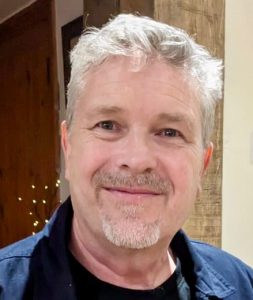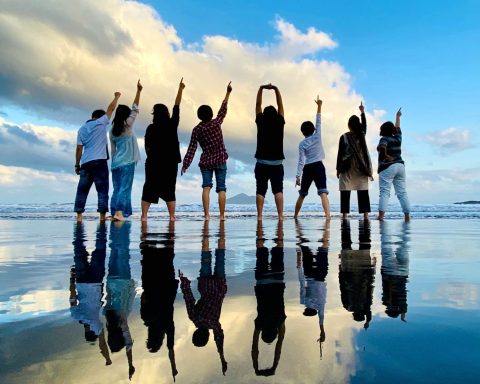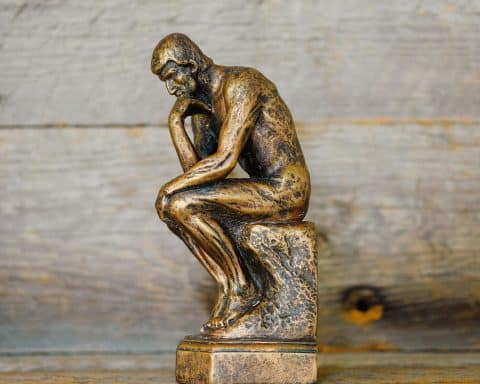 Graham Easton is a GP by background, and Professor of Medical Education at Queen Mary University of London. He is particularly interested in clinical communication skills, and runs sessions for medical students on wellbeing and burnout.*
Graham Easton is a GP by background, and Professor of Medical Education at Queen Mary University of London. He is particularly interested in clinical communication skills, and runs sessions for medical students on wellbeing and burnout.*
A few years ago, working as a general practitioner (GP), I developed burnout. The classic signs were there; compassion fatigue, cynicism and emotional exhaustion. I just felt “used up”. Once I worked out what was wrong, I took some time out, and with support from the (then) Practitioner Health Programme, I slowly got back to my normal self again. I’ve often wondered if I could have done anything to prevent it in the first place. It felt to me as if the job itself was the problem – too much demand, not enough time, the stressful nature of the work. Until that changed, I thought, we all just had to plough on through, and accept that it might catch up with some of us one day.
But I’ve recently been working on a fascinating project which has made me wonder if the arts could offer a fresh approach to GP wellbeing which is practical and gets to the heart of some of the problems we can change. With a 2021 survey suggesting 60% of GPs over the age of 50 plan to leave the profession by 2026,1 and with UK GPs among the least satisfied in Europe with their work-life balance, workload, and time spent with patients,2 new approaches to boost staff wellbeing are more critical than ever.
I’ve recently been working on a fascinating project which has made me wonder if the arts could offer a fresh approach to GP wellbeing which is practical and gets to the heart of some of the problems we can change.
Performing Medicine is an award-winning programme from performing arts organisation Clod Ensemble which has supported health professionals through arts-based training for over twenty years. The programme’s unique approach, delivered by leading artists who use ideas and practices from the performing and visual arts, introduces strategies and techniques to build effective communication, teamwork, self-care and leadership.
Their latest work, run in collaboration with Queen Mary University of London, as part of a project supported by the UKRI Arts and Humanities Research Council, has delivered innovative workshops for primary care staff, focusing on healthy, sustainable practice. In the feedback so far, primary care staff said the creative workshops were a rare chance to focus on their wellbeing needs, gave them new practical skills they could use in their jobs, and left them feeling more connected to their colleagues.
The workshops were tailored to the needs of the primary care staff who attended, and reached 133 clinical and non-clinical staff, across 6 different Integrated Care Systems. Staff chose to focus on what some called the growing “Amazon culture” – fast-paced and high-demand – which often left them feeling overwhelmed and under pressure. They felt isolated from each other, partly through lack of time to meet and connect, but also due to the recent shift towards online working and consulting.
I think in the past I might have sneered at the idea of spending a few hours with performing artists when we had a busy job to get on with, and a never-ending to-do list to work through.
The stories will sound familiar; staff reported that they spend a significant portion of their time sitting in the same place and not leaving their seat for hours at a time, in order to avoid falling behind on work. One workshop activity addressed this by focusing on the importance of body posture and movement, its impact on self-care and culture within the surgery, and introduced simple techniques to re-set the body for wellbeing.
Another practical activity was used to provoke reflection and show the impact of multi-tasking on communicating with staff and patients. Staff noticed that when they were put in the position of a patient, trying to tell their story to someone juggling several tasks, they felt undervalued, unheard and often stopped talking. From this, staff identified small but vital changes to improve conversations with work colleagues and patients, such as slowing down and being more “present”. This also led to discussions about how to end consultations so that patients feel valued and listened to, but also allows doctors to set boundaries so they are not overwhelmed.
Other elements of the sessions included interactive and reflective exercises exploring ways to prepare, re-set and wind down within a busy schedule; vocal exercises to explore the impact of the voice on communication; and looking at the influence of our workspace and basic movements [such as walking to the waiting room to collect patients] on wellbeing and how we come across to patients and colleagues.
I think in the past I might have sneered at the idea of spending a few hours with performing artists when we had a busy job to get on with, and a never-ending to-do list to work through. But just ploughing on wasn’t working. From what I have seen of this project, in expert hands, the arts can offer a refreshing new approach to the daily pressures of the job, a rare chance to focus on your own wellbeing, and an energising re-connection with your team. I’d say that’s worth a few hours.
Performing Medicine will be sharing their experience from the workshops and exploring further opportunities to widen access to these arts-based approaches to boost wellbeing of the primary care workforce on 7th June 2024 (see details here).
References:
- Eleventh National GP Worklife Survey 2021. https://prucomm.ac.uk/assets/uploads/Eleventh%20GPWLS%202021.pdf (Accessed 28.05.24)
- Munira Z. Gunja et al., Stressed Out and Burned Out: The Global Primary Care Crisis — Findings from the 2022 International Health Policy Survey of Primary Care Physicians (Commonwealth Fund, Nov. 2022). https://doi.org/10.26099/j2ag-mx88
*Declaration of interest: The author is Co-Investigator with Performing Medicine on this Communicating Through Covid Project, and receives payment for his work on the project
Featured image by Javier García on Unsplash






